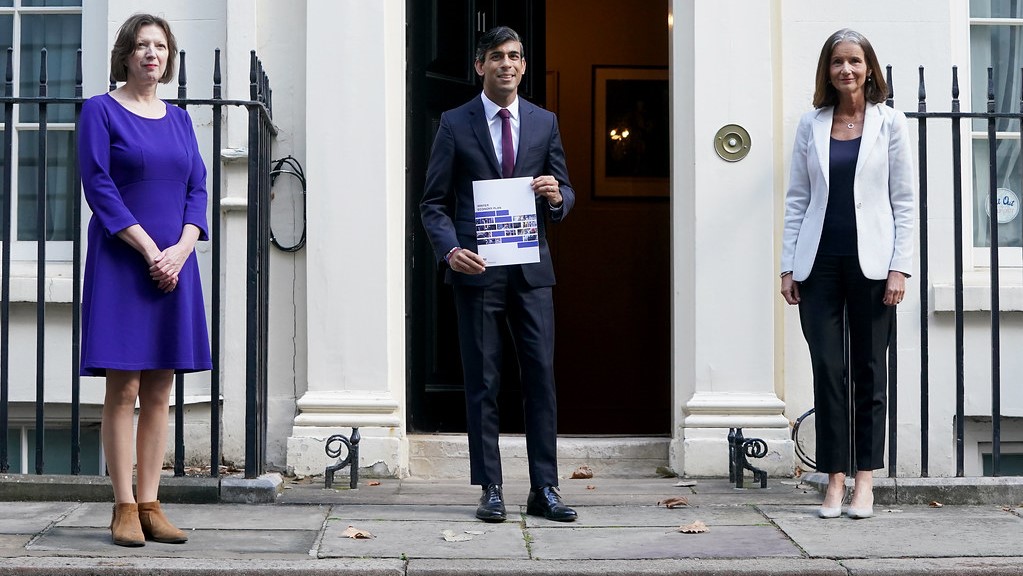UPDATED: The government will pay one-third of the wages of workers on the days they do not work through its new Job Support Scheme. Employers will pay the other third and the employee will take a one-third paycut on days not worked.
In effect, this means the government has only committed to covering one-fifth of the wages of small business workers who are working one-third of their normal hours. Small business owners will be expected to cover 55 per cent of wage costs overall on a five-day week, the government 22 per cent — which means the small business employee faces a 23 per cent overall from November 1.
The question remains whether small businesses will be prepared to dig into their pockets to keep workers “fully employed” – even if they are not at work for the majority of the time under the Job Support Scheme – or whether it’s easier just to put them on reduced hours.
Accountancy firm Kreston Reeves pointed out that a flaw in the scheme that would leave small businesses that choose to keep three part-time employees working one third of their normal hours facing significantly higher costs than if they were to keep just one employee working full time.
Andrew Tate, partner at Kreston Reeves, said: “The job support scheme looks to ensure that staff working one third of their normal hours will receive 77 per cent of their salary, with the government providing 22 per cent and the employer 55 per cent
“This means that that if an employer chooses to keep three people on who are each working one third of their normal hours – or the equivalent of one full-time employee – they will in fact end up paying considerably more than one full-time equivalent member of staff.
“An employer will be paying three times the required 55 per cent salary percentage, a total of 165 per cent. Whereas one full time employee will, naturally, receive 100 per cent of their salary. The government is effectively asking businesses to pay a 65 per cent premium to keep three staff working the equivalent of one full-time employee, which, on a purely financial basis, does not make sense.”
Rishi Sunak announced the six-month Job Support Scheme to follow on from the coronavirus furlough scheme.
The level of government grant will be calculated based on an employee’s usual salary, capped at nearly £700 per month.
>See also: Rishi Sunak eyes subsidising wages of part-time workers
Only full-time staff will be eligible for the Job Support Scheme.
The Job Support Scheme is designed to support full-time staff where there is not enough demand to justify them working a five-day week.
As he set out his winter economy plan in the Commons, the chancellor conceded: “The primary goal of our economic policy remains unchanged — to support people’s jobs — but the way we achieve that must evolve. I cannot save every business, I cannot save every job.”
The chancellor previously made clear he did not want to extend the £39bn furlough scheme to keep people in so-called “zombie jobs” that no longer really exist.
The Job Support Scheme will cost the government £300m a month for every million people compared with the £4bn monthly cost of the furlough programme. With 3m people using the Jobs Support Scheme, the final bill would be £5.4bn.
>See also: Rishi Sunak to extend government coronavirus business support
Pay As You Grow
The chancellor also announced that Bounce Back Loans will be rebranded as Pay As You Grow loans, extending loans from six to 10 years, nearly halving monthly repayments.
Struggling businesses need only pay interest and payments could be suspended for up to six months without affecting their credit rating.
And applications for all four coronavirus support schemes will be extended to the end of November.
The four loan schemes have already backed £59bn in lending to companies through government guarantees.
VAT cut extended to March
- Up to 500,000 business that deferred their VAT bills will be given more breathing space through the New Payment Scheme, which gives them the option to pay back in smaller instalments. Rather than paying a lump sum in full at the end March next year, they will be able to make 11 smaller interest-free payments during the 2021-22 financial year.
- The chancellor also announced that the VAT cut for the hospitality and tourism industry to 5 per cent, due to expire in January, has been extended until March 31
Self-employed Income Support Scheme extended
The chancellor has also extended the Self-employed Income Support Scheme (SEISS) again, providing a taxable grant to those already eligible for the scheme. The initial lump sum will cover three months’ worth of profits for the period from November to the end of January 2021. This is worth 20 per cent of average monthly profits, up to a total of £1,875.
A further grant, which may be adjusted to respond to changing circumstances, will be available for self-employed individuals to cover the period from February 2021 to the end of April.





